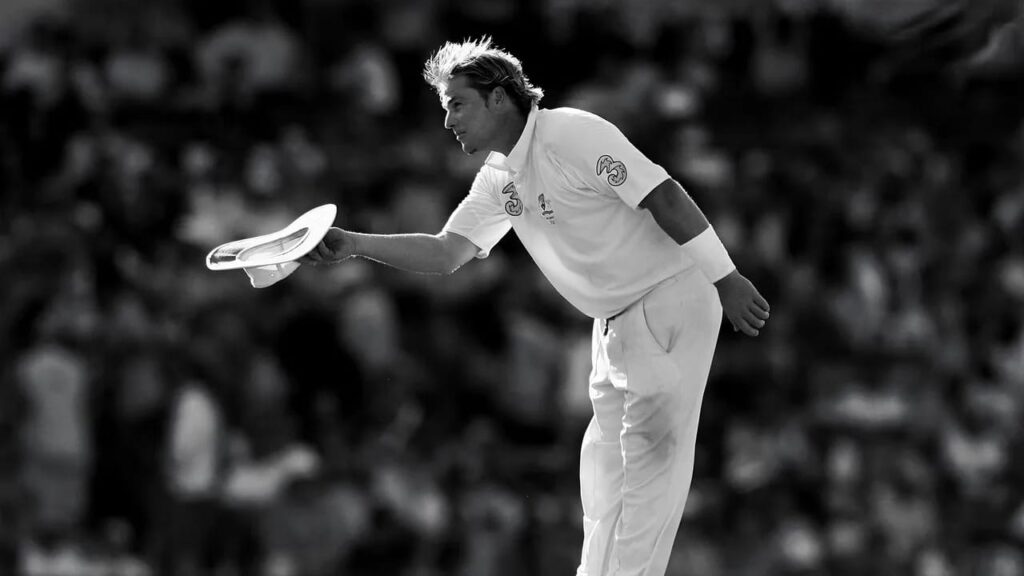
How do I remember Shane Warne? Walking the first couple of steps before jogging on to the bowling crease and giving the ball a rip – classic Warne. And with him around, anything could happen. For years, the ball was transformed into a canvas in the hands of the artist. Each time he flicked his wrist, we would see colours of a different hue. Mike Gatting witnessed it first hand in what we now know and recognise as the Ball of the Century. The ball, under the impact of the many revolutions Warne had imparted on it, had little option but to land outside leg stump and then change direction as if deflecting off a wall before crashing into Gatting’s off stump. The batsman, like everyone else around, was stunned. While the Australians regained composure and the emotions turned from bewilderment to ecstasy within seconds, for Gatting it was a sense of disbelief. No skill could have combated that ball, and all Gatting or anyone else could do was succumb to the genius of Warne. It was, at one level, a sense of helplessness. What could one do if someone was that good?
That’s the real Warne story. He was just too good. May be even he did not realise on occasion how good he was, and that’s why he let things drift. For, on the cricket pitch, everything was controllable with Warne around. With ball in hand, he could weave a kind of magic that no one else could even think of. As a result, he just felt supreme in every situation. Australia under the pump, and all Steve Waugh or Ricky Ponting would have to do was throw the ball to Warne. He would deal with the situation and pull a rabbit out of the hat. When you are as good, it gives you a sense of infallibility.
If he could control the number of revolutions on the cricket ball and control each degree of its movement, he could control life in equal measure. With money and means, there was nothing that he couldn’t control – that was the sense that one got at times. The problem is that you can’t control health. No amount of money and no amount of talent can help control the effects of indiscipline on one’s body. That’s what happened to Warne, and that’s what he couldn’t control. He tried to control the uncontrollable, and you can never win against the powers of nature.
While I can’t claim that Warne was a friend, I can certainly say we were fairly well-acquainted with each other. I had the pleasure of interviewing him on a few occasions, and each time, the thing that struck me was his opinionated and candid nature. When you interview a star, you are always in search of a headline. You want them to say things that have news value, and things that will get people hooked on to the interview. An interview for the sake of an interview will never have much appeal. With Warne, you always got value for your time.
He would make sharp, incisive and provocative comments and inevitably polarise opinion. At least, he would make people think. Make them sit up and take notice. A genius, his thoughts would be tailored towards things that not many could think of or fathom. It would take a Warne to point you in that direction. That’s what I observed each time we did an interview. In fact, it wouldn’t be wrong to say that Warne often took control of the conversation. In normal circumstances, one would be adequately prepared for an interview and control the flow. That’s how most interviews are done. With Warne, things were different. He would inevitably turn up with an out-of-the-box answer and change the course of the conversation. Like on the pitch, he loved control, and more often than not, ended up on the winning side.
It is this which I miss about Warne. In every sense, he enriched the game we all love. And he did so with tons of hard work. While people talk about his success, what we don’t mention is the amount of effort he put into his bowling. Each time I read parts of his autobiography, this is the one thing that stands out. He never left things to chance and never took the short cut. Meshed with all the talent that he possessed, he worked the hardest to hone it and give it a kind of finesse none could think of attaining.
It was not simply the spin that he imparted on the ball. There have been bigger turners of the cricket ball than Warne, and Stuart McGill was a prime example. McGill could turn the ball more than Warne on occasion, and yet could never match his genius. While it is one thing to be able to spin the ball, what is more important is to be able to control the spin in a way that you pick up your prey. While Glenn McGrath moved the ball far less than some of his contemporaries, what he did was take the edge far more regularly than others. That’s why he has 563 wickets, while many others ended their careers with around 200.
Warne knew the art of perfection. With the ball, he was as close as one could possibly get to it. A fascinating man, he enriched world cricket for three decades before leaving us all poorer with his premature departure. For cricket’s 007 equivalent, all we can say on his birthday is that it was “No time to Die”.




